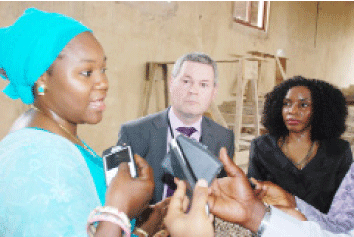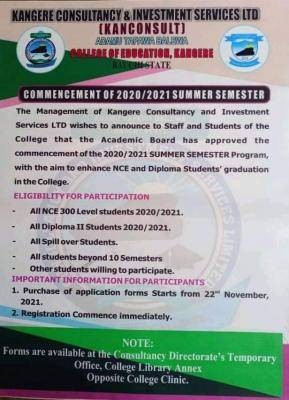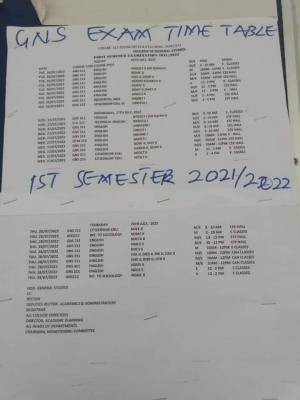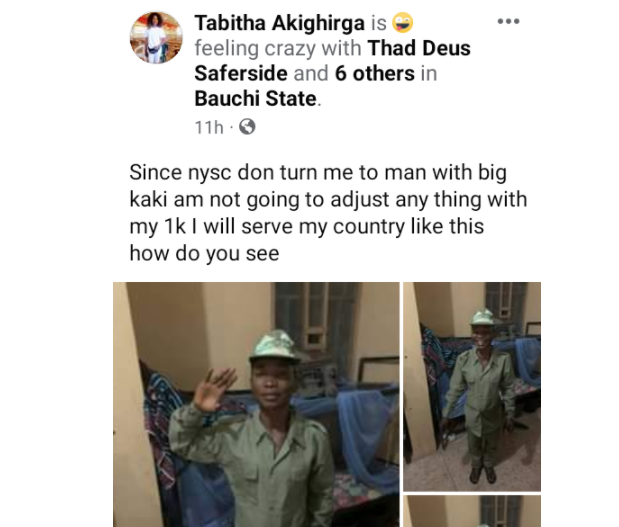
In an era when there is obvious decadence in our educational sector, most parents have continued to be disillusioned over the state of graduates from both the public and private schools.
Many have argued that the worst-hit are the public schools, where quality impartation on the students has nose-dived. Experts also posit that many factors play a role in the current state of the country’s education system. The government’s near-disinterest in the advancement of education, the prevailing morale decadence in the society, political instability, economic hardship, are just some of the factors responsible for this ugly development.
While a number of well-meaning Nigerians have continued to intervene in the sector by setting up private educational institutions, it seems that the malaise bedevilling the sector is still far from been over.
Some do believe that though the intervention is good for education in Nigeria, it has failed to rejuvenate the dwindling fortunes of the sector – a development desperately needed if the country should be counted amongst the world’s leading education destinations.
Similar Posts:
It is argued that while the private sector has continued to build world-class infrastructure to get parents to send their wards to their schools on the one hand, they have failed to provide qualified man-power to lift the schools to acceptable standards capable of reproducing roundly educated young people.
Also, most of these schools have failed to inculcate proper morals in their students, thereby breeding Nigerians who will help to worsen the already existing rot in the society.
In a bid to bring back the glory days of quality education in the country, as was evident in Unity schools set up by the Federal Government in the ’70s, and re-enact the ability of the nation’s schools to mould students both in learning and character, three sisters from the Mutallab dynasty decided to contribute their quota in rebuilding the nation’s educational sector by setting up an all-girls academy in Abuja, the Federal Capital Territory.
The school, Noble Hall Leadership Academy For Girls, located at the Institute and Research District of the territory, is being managed by one of the sisters, Maryam Mutallab Duba, while the other two manage the Oakland and Zetuna Preparatory schools, respectively.
Recently, the management of the school, led by the founder/proprietor Maryam Mutallab Duba, the principal Stewart Cowden and the vice principal Mrs Hussaina Ishaya-Audu, took some journalists on a facility tour of the school under construction at their 2.8 hectares land permanent site at the research district.
Prior to the commencement of the tour, the journalists were first taken to visit the temporary site in Jabi District, where few students were seen attending classes. According to Cowden, the school is presently housed in a bungalow, pending completion of construction at the permanent site, perhaps, by September this year.
Cowden conducted journalists round the on-going projects in the permanent site – a state-of-the-art, two-storey hostel that will accommodate over 500 students, two-storey teachers quarters of eight flats each, three-bedroom principal’s quarters, a massive two-storey academic/administrative building with staff offices and classrooms which can seat 20 to 25 students each, a library wing, a music class, science laboratories and a state-of-the art 500-capacity auditorium.
According to Mutallab-Duba, the essence of investing heavily in the classy school project “is to provide a first-class educational environment for girls, with the aim of raising a new cadre of female leaders in the country.” She further enthused that “the all-girls school was set up to equip girls with the required knowledge and skills, as well as instil strong family values in them, which will, in turn, influence change in Nigeria and Africa.”
Being a product of an all-girl school, Mutallab-Duba believes an all-girls school – and not a co-educational school – gives young ladies the platform to excel more.
“Studies have shown that girls are very competitive. Girls do much better in all-girls schools than co-educational schools. Girls learn better when they are on their own, because at this stage, their brains mature faster than that of boys. But at a certain age, it matures at the same rate.
“But between the ages of 11 and 14, the maturity of girls spike and become higher than those of the boys. So, if you put them together they do better academically. Another thing is that they do not experience the same pressure which boys do: This makes them excel.
“Science-based classes tend to favour the boys more and when you have a girl in a co-educational class that is very good in sciences, she tends to draw them back, because she does not know that girls are supposed to study subjects like Engineering and other science courses. But when put you them together in an all-girls school alone, the competition will bring out the best in them.”
But how affordable is Noble Hall Learning Academy for Girls? Mutallab-Duba insists that the school is reasonably prized compared to other schools, noting that hers gives parents good value for their money and their wards quality of education.
Cowden, the principal, who is also a Briton, told journalists that the school is using the British curriculum, though it has been embellished with Nigerian educational demands – a factor which gives them an edge over other schools. “We are a school that is preparing [young] people for the 21st Century. Some schools are still living in the 20th Century. Ours is a school that acknowledges the role of women in the society and any student who enrols here will get first-class, excellent education,” he said. (Leadership)




